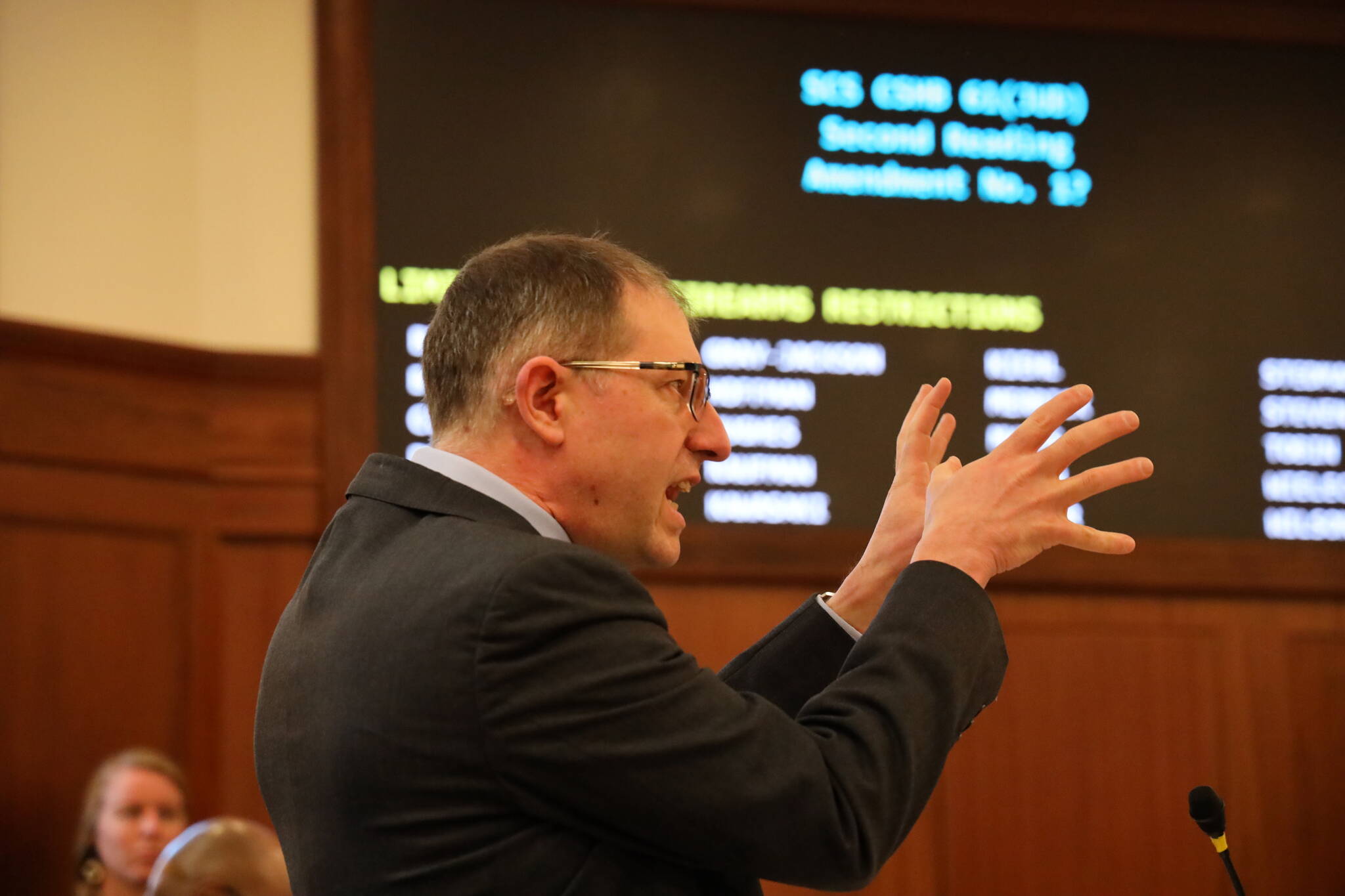A bill prohibiting state and municipal officials from closing firearms businesses such as retail stores and shooting ranges during declared disasters passed the state Senate by a 17-3 vote, clearing the way for it to be sent to Gov. Mike Dunleavy.
The Senate removed a provision added during a committee hearing Sunday exempting grocery stores, medical facilities and housing entities from a requirement that firearms retailers not be treated differently than other businesses. That set off a floor debate about whether a gun shop is as essential as those other businesses, and if the Second Amendment is getting different treatment than other enshrined rights if the bill becomes law.
House Bill 61 is sponsored by House Speaker Cathy Tilton, a Wasilla Republican, making it a potential piece of the puzzle in getting legislative leaders to conclude necessary business before tomorrow’s scheduled adjournment. The Senate can opt through parliamentary moves to hold on to the bill so the House cannot hold a final floor vote to pass it before the session adjourns.
Supporters of the bill said the COVID-19 pandemic, which saw the shutdown of many businesses selling firearms and ammunition, showed the hardships such actions can pose to residents who depending on hunting for food. There were also arguments the restrictions posed a threat to safety and infringed on people’s constitutional rights.
“When you’re talking about shutting down something the Alaska people have said expressly and explicitly is an individual right you cannot do that,” said Sen. Bill Wielechowski, an Anchorage Democrat.
State Sen. Jesse Kiehl, a Juneau Democrat, was one of the dissenting votes, arguing among other things it “elevates in Alaska law the Second Amendment above all the rest of our rights.” He said current regulations already ensure “a really compelling reason” is needed to close firearms businesses.
“The question is what in a declared disaster emergency is what has to be closed if a gun store is closed,” he said. “The answer is just about everything has to be closed if a gun store is.”
The House, if the Senate transmits the bill, will need to concur with relatively minor changes made by the Senate, such as eliminating a passage allowing attorneys to receive triple their actual legal fees if successful in a case involving a violation of the law. Tilton stated she didn’t oppose the change, since the provision is part of a Missouri bill her legislation is based on.
• Contact reporter Mark Sabbatini at mark.sabbatini@juneauempire.com

